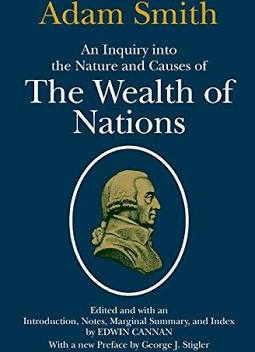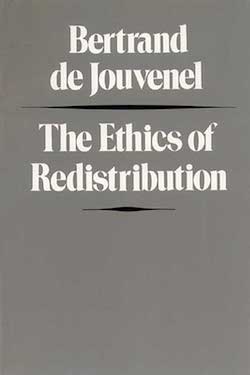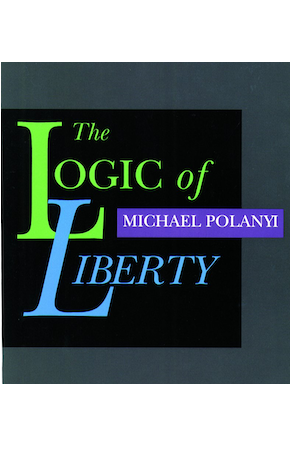The dreaded word “Capitalism” is still with us and still the cause of much debate. Capitalism is hated by many, embraced by others, and misunderstood by most—even by those who benefit lavishly from it. For example, some of the more bestial attacks on capitalism come from extremely wealthy capitalists. Socialists hear the word and it conveys to them images of selfishness, greed, exploitation, inequality, war, and imperialism—a scourge on the face of the earth.
The intellectual classes resort to envy. Why should I, they wonder, make less than that uneducated Rotarian making millions by selling soap? Envy motivates their hatred. The pulpit-pounding religionists lament the lowering of morals, greed, and the corruption of affluence. Some of them long for the days when their dictates were law and their privileges secure, and others hold to their ideology, now sprinkled with Bible verses. Paul Tillich called capitalism “demonic,” R. H. Tawney spoke of the evil of acquisitiveness, and Max Weber told us that capitalism “crushes the human spirit.”
My own life is a witness to how misunderstandings of capitalism can lead one to attack it, until one’s eyes are opened and suddenly the unbearable thought arises: maybe, just maybe, I have been wrong. I remember examining the poverty that surrounded my life and finding an easy culprit: the forces of capital. Today, I salute capitalism and I embrace it. It is the economic system that better maximizes both growth and individual liberty. Capitalism succeeds because it is adaptive, not rigid, whereas so much regulation often fails despite good intentions. It is superior because it takes account of human fallibility, instead of attempting to eliminate it. Its anthropology is sound: The human person is creative and productive and in unleashing these potentialities we can create unimaginable wealth for most human beings.

It is superior because, believe it or not, it is humble. It is not a comprehensive system with a ready answer for all the mysteries of life. It is narrow in its pretensions. If you want greater production, do this—and that is it. Capitalism succeeds because it has proven to be effective in creating a steady rise in wage earners’ standard of living. Through trial and error, and often through periods of struggle and want, capitalism allows for experiential learning as the better alternative to ideological dreams. Don’t tell me how society ought to be, tell me how I can make lemonade with the lemon!
As the late, great Michael Novak tells us in his masterly The Spirit of Democratic Capitalism (a book you must read if you aspire to complete your learning on economic freedom), “Of all the systems of political economy which have shaped our history, none has so revolutionized ordinary expectations of human life—lengthened the life span, made the elimination of poverty and famine thinkable, enlarged the range of human choice—as democratic capitalism.”
For most of human history, the economy remained static—a steady state of poverty and low production, with subsistence as the aim and trade mostly local. Growth is a relatively recent phenomenon.
In the year 1500, global production was about $250 billion. Today, it’s around $60 trillion.
People were less mobile, they traded for what they needed from those closest to them or bartered for supplies. Wealth was concentrated on the land and major landowners were few. Either through chattel slavery or through the enslaving of peasants to the land, production remained meager, society was irremediably stratified, and privilege was destiny—as was dependency.
With capitalism came an optimism that was new. The despised merchant could aspire to a quality of life that rivaled or even surpassed that of the aristocratic and ecclesiastical classes. Optimism about progress in the future is what began to drive our economic system and without it, there would be no growth. This is an important piece of the history and origin of capitalism. Until relatively recently, this trust in the future didn’t exist, and this limited the growth of the economy. We can romanticize the slow pace of a past with its eyes on the heavens. But that is all it is: romantic drivel.

In the past, money could convert almost anything into almost anything else, but those things had to exist. We could acquire things, but what value did acquisition have if production was scarce? Money had a different nature, lacking the character of capital—its mystery, to use Hernando de Soto’s excellent description. It couldn’t represent the resources one could hope to have in the future, once an enterprise started making a profit.
In an economy without trust in the future, banks wouldn’t loan people money. For what would they lend? The only way one could build an enterprise would be to find a contractor willing to wait to be paid until after the business was built and making a profit. As this wouldn’t be likely, the enterprise never existed. As many people faced this deficiency of resources, the economy remained stagnant.
Credit is founded on the optimistic assumption that the future will have more abundant resources than the present. Because money could only represent things that actually existed, wealth was limited.
In other words, there was only so much money to go around. If one candy store was prospering, that meant the other down the street had to be starving. A set amount of wealth meant that if you had it, it was because you were taking it away from someone else. Who had it? A few. Why? Because they were born in privilege. The only system in history that has eliminated privilege is capitalism, so spare me your soupy ideology about rich privilege or white privilege.
If resources were fixed and scant that meant a zero-sum game that had to be sinful. Many people thought that being rich was either a blessing from the heavens that could not be challenged or a nearly unreachable status that could only be achieved by vicious avarice.

Little by little, with small merchants leading the way, people started to see that their wealth was independent of the poverty of others. In fact, creating wealth and benefiting from it was a public good, a good for the whole of society. Adam Smith, in his Wealth of Nations, contended that an employer’s profits benefit society because the employer reinvests his profits in hiring more employees.
By hiring more employees, the employer more widely spreads the business’s profits. In the past, rulers and the wealthy had spent their wealth on tournaments, palaces, banquets, wars, and charities. Now, they were expected to reinvest their profits in production, which would increase profits, which could then be reinvested, continuing the cycle. Amazing! This reinvested money is called capital.
Capital is the term for money and resources that are invested in the production of a product or service.
Consider the world that existed as Smith was writing his magnum opus. Mercantilism was king. Once a generation, famines wiped out great portions of the civilized world. Plagues killed throngs of people. Sizable numbers of people devoted their whole income to acquire a little bread to survive. Life expectancy in France was 27.3 years for women and 23.4 years for men. Those who journeyed afar came back feeling sorry for the conditions they found in Africa and Asia, far worse than dilapidated Europe. Illiteracy was virtually universal and great swaths of the world did not know about the wheel. Medicine was more like witchcraft.
After a steady state of pain, suffering, and want, after five millennia of dry existence, something rained on the face of humanity. Men finally figured out the key to the sustainable and systematic creation of wealth. In Great Britain large industrial cities emerged and throngs of people escaped the rural lands to try at a better life in the factories. Life was better there, in spite of the lore now fed to impressionable youngsters about how corrupt and evil early capitalism was—a lie! It was simply the painful emergence of a wondrous system that, even in the midst of its real struggles, doubled real wages between 1800 and 1850, and doubled them again by 1900. Since the population improved its lot, the British population quadrupled, meaning that the total wage increase was 1600 percent in one century.

Capitalism unflaggingly aims at improvement. A mark of capitalism is the facilitation of production by allowing human intelligence to be applied to the “stuff” of the earth to recreate it. Its wonderful instrument is the profit motive, which means that my efforts will be rewarded. More, better, and cheaper things are produced for more and more people and in the process I can better my life, the lives of my family, and the community where I live. Some Christians despise the profit motive but in point of fact we all want to receive compensation.
An excess of profits over losses signals that in an economy—even if sin intervenes and some misuse the system—the masses’ standard of living improves. In other systems sin will also intervene, as they all necessarily fail in changing human nature. But as the system is controlled, the standard of living suffers. The many benefit even if I don’t care about them in capitalism. The socialist fails to capture this truth.

As Bertrand de Jouvenel tells us in his Ethics of Redistribution, “If more goods are the goal to which society’s efforts are to be addressed, why should more goods be a disreputable objective for the individual? Socialism suffers from ambiguity in its judgment of values: if the good of society lies in greater riches, why not the good of the individual? … If this appetite for riches is bad in the individual, why not in society?”[1]
The rise in the standard of living under capitalism was nothing less than miraculous, a truth that even Karl Marx recognized in his Communist Manifesto. In the merry days of old, even the wealthiest people would envy the lifestyle of today’s hoi polloi. Compared with the average standard of the American or Australian worker of our age, the wealthy in yonder years lived a brutish life. We speak of the threat of consumerism because we have much to consume. I prefer that threat to starvation, a short life, and the boredom of emptiness in the pocket.
It is a falsity that it was socialists who pressured the industrialists to offer certain benefits that otherwise would not have ensued. It was not labor legislation and labor-union pressure that shortened hours of work and withdrew children from the factories; it was capitalism, which made the wage earner so prosperous that he was able to aspire to and buy more leisure time for himself and his dependents. The nineteenth and early twentieth century’s labor legislation achieved legal ratification for changes that the interplay of market factors had brought about previously.
I admire much in capitalism but if anything stands out, it is its pluralism. That pluralism does not exist either in traditional or socialist economies. In socialism, the emphasis was on conformity to a collective plan and the monopoly of an elite over truth and goodness. Similarly, in traditional economies prior to capitalism, the emphasis was on the land or the localized subsistence economy or the aims of the lords at the top and again their monopoly over truth and goodness. Capitalism rejects the unitary order where everything is fixed beforehand—follow the rules, stick to the national plan.

In his great book, The Logic of Liberty,[2] Michael Polanyi tells us of the disaster that resulted in the early Soviet state with its centralized economy when everything was directed by its Supreme Economic Council. Then came the centralization of banks, which discouraged the use of money. Wages were often paid in food. Legal trade almost disappeared, substituted by the distributive organs of Soviet power. Everything collapsed. The peasants revolted. Leningrad was racked by strikes. Famine killed millions. Dressed as a temporary measure on the way to socialism, they reintroduced markets momentarily to avoid complete catastrophe and the left in the West bought the lie of the advances of the Soviet way. And you, Democratic socialists, try the same failed centralization aims at the distribution of certain social services. Disaster still awaits.
I actually think that capitalism ought to glory in its amorality. It imposes no moral order one way or the other, however, the production of wealth might incline people. As it is not a vision led by the angels nor by the vanguard, some think it is purposeless, brute, leading to alienation and anomie. I strongly disagree, In fact, it’s amorality and pluralism can be seen from a different perspective.
Its refusal to impose an order frees us to pursue the good, which must be achieved by convincing free men. It is a necessary prerequisite to authentic freedom. Our capacity to raise questions, and the space to pursue our interests, is the very exercise of our Imago Dei, the expression of our reality as beings who transcend. Yes, truly free persons at times will experience unease and alienation! Conformity is not necessarily a virtue. The system is intentionally open to risk, exploration, questioning, experimentation, and progress. Thanks be to God!
Capitalism also glories in its anarchy. Economist Wilhelm Röpke, in his Economics of the Free Society, describes the “ordered anarchy” of capitalism, stating that political anarchy invariably leads to chaos but anarchy in economics, strangely, produces an opposite, an orderly cosmos.
Of course, there are sins and errors and problems under capitalism. Capitalism is an instrument that can be misused. But it is the best instrument available. Often, however, capitalism is blamed for sins that are not it’s own. Capitalism is like an efficient meat grinder. We have not seen one like it. But then the culture feeds rotten meat into the grinder. The grinder grinds the meat for sausages but the sausages stink. Of course, they do! They are filled with rotten meat. Here comes the cook, and he expected the meat grinder to make the meat whole, fresh. So, he takes a hammer and starts banging on the grinder to “fix it.”

We can see rather easily that the products coming out of the grinder will not improve however expertly you bang on the grinder. The problem is elsewhere. In effect, the more you hit the grinder the less efficient it becomes—you have introduced distortions into the wrong culprit! You expected an outcome not promised by the instrument. You will then hammer more and more, still trying to fix what is not broken until you break it—cursing the hammer all the way to not having any more sausages.
Here is where we need to go back to what Michael Novak called “democratic capitalism.” What is that? It means that there are three systems in one, three necessary components that form a truly free and virtuous society: a market economy; a polity respectful of the rights to life, liberty, and the pursuit of happiness; and a system of cultural institutions moved by ideals of liberty and justice, or in other words a healthy moral-cultural system.
The convergence of these three aspects is not merely accidental. In fact, I maintain that a truly free society is not compatible with a society that offends individual freedom and justice nor with a society whose moral-cultural system does not incentivize and uphold the virtues necessary for enterprise and a healthy moral ecology. We need a political system that distrusts and limits the power of the state, liberates the powers of individuals to pursue their interests, protects the private ownership of individual property, including the means of production, and, in a subsidiary fashion, promotes virtue.Bastard forms of capitalism seem to work for a moment, but they are antithetical to the good society and eventually disintegrate. If you feed the meat grinder rotten meat, don’t expect its sausages to smell like roses. You will have a great grinder but an unhealthy meal
[1] De Jouvenel, Bertrand, The Ethics of Redistribution (Indianapolis: Liberty Fund, 1990), 15.
[2] Polanyi, Michael, The Logic of Liberty (Indianapolis: Liberty Fund, 1980).


